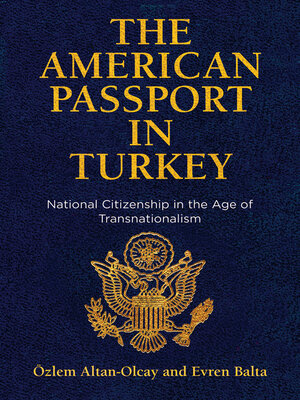The American Passport in Turkey
ebook ∣ National Citizenship in the Age of Transnationalism · Democracy, Citizenship, and Constitutionalism
By Özlem Altan-Olcay

Sign up to save your library
With an OverDrive account, you can save your favorite libraries for at-a-glance information about availability. Find out more about OverDrive accounts.
Find this title in Libby, the library reading app by OverDrive.



Search for a digital library with this title
Title found at these libraries:
| Library Name | Distance |
|---|---|
| Loading... |
An ethnographic exploration of the meaning of national citizenship in the context of globalization
The American Passport in Turkey explores the diverse meanings and values that people outside of the United States attribute to U.S. citizenship, specifically those who possess or seek to obtain U.S. citizenship while residing in Turkey. Özlem Altan-Olcay and Evren Balta interviewed more than one hundred individuals and families and, through their narratives, shed light on how U.S. citizenship is imagined, experienced, and practiced in a setting where everyday life is marked by numerous uncertainties and unequal opportunities. When a Turkish mother wants to protect her daughter's modern, secular upbringing through U.S. citizenship, U.S. citizenship, for her, is a form of insurance for her daughter given Turkey's unknown political future. When a Turkish-American citizen describes how he can make a credible claim of national belonging because he returned to Turkey yet can also claim a cosmopolitan Western identity because of his U.S. citizenship, he represents the popular identification of the West with the United States. And when a natural-born U.S. citizen describes with enthusiasm the upward mobility she has experienced since moving to Turkey, she reveals how the status of U.S. citizenship and "Americanness" become valuable assets outside of the States.
Offering a corrective to citizenship studies where discussions of inequality are largely limited to domestic frames, Altan-Olcay and Balta argue that the relationship between inequality and citizenship regimes can only be fully understood if considered transnationally. Additionally, The American Passport in Turkey demonstrates that U.S. global power not only reveals itself in terms of foreign policy but also manifests in the active desires people have for U.S. citizenship, even when they do not intend to live in the United States. These citizens, according to the authors, create a new kind of empire with borders and citizen-state relations that do not map onto recognizable political territories.







